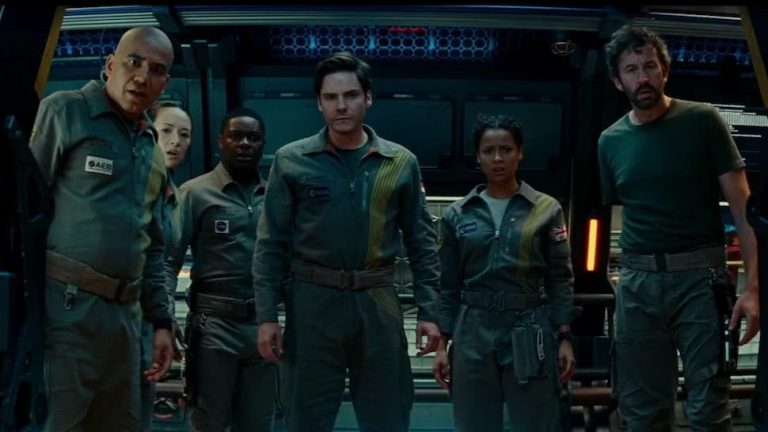The Cloverfield Paradox doesn’t feel like a Cloverfield film. But that’s not particularly surprising, given that for a long time it wasn’t: in its original life as The God Particle, the sci-fi serve of horror wasn’t even meant to be tangentially related to the J.J. Abrams produced Cloverfield series. It was only after a hasty rewrite – obviously very hasty, given the final product – that the film was retconned into the pre-existing cinematic universe, messily recast as a sequel it was never intended to be.
What is more surprising however, given the film’s hefty price tag and the level of talent involved – everyone from Daniel Bruhl, to comedian Chris O’Dowd, to Australia’s own Elizabeth Debicki shows up – is that The Cloverfield Paradox doesn’t really feel like a film at all. It is, at best, a straight-to-video mess from the early thousands; a devastatingly ugly, unbelievably incoherent jumble that doesn’t manage to entertain for one second of its interminable runtime.
An Alien clone rewritten to resemble an Event Horizon clone rewritten to resemble a Sunshine clone, The Cloverfield Paradox sees a group of stereotypes bump around a space station muttering to themselves about parallel dimensions, and energy crises, and space demons. No hero is adequately distinguishable from one another, and when one of the central characters turns rogue in the final third, it’s somewhat of a strange relief – at least it becomes clear that somebody on the ship has agency of their own, even if it is malicious.
It is an affront to God.
It doesn’t help that the film was very obviously test-screened within an inch of its life. Although the “plot” unfurls in space, The Cloverfield Paradox also boasts long, pointless scenes set back here on earth, as the young husband of one of the film’s leads tries to get a young girl back together with her parents. He never says anything of value; the young girl never endears herself to the audience; and none of this shit means anything. It is as pointless and as tiresome as a puppet show mounted by a child, for an audience of none– a meandering exercise in time-wasting seemingly dreamed up by a screenwriter ripping off all the movies he himself would rather be watching.
And that’s not even to mention the final shot of the film, a throbbing middle finger shoved right in the faces of poor audience members who have managed to crawl themselves through the thing with their sanity intact. It is an insult to the Cloverfield franchise, previously a spotless brace of films. And it is more than that too – it is an ugly, charmless affront to God. Watch almost anything else instead.
To read a review of a film that is actually worth your time, check out this bit on doco The Centre Will Not Hold, which is available on Netflix Australia now. But if you absolutely must, you can watch The Cloverfield Paradox on Netflix.

































